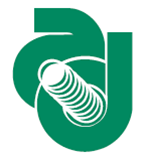Speaker
Description
ULTRASAT (ULtraviolet TRansient Astronomy SATellite) is a wide-angle space telescope that will perform deep time-resolved surveys in the near ultraviolet spectrum. ULTRASAT is led by the Weizmann Institute of Science (WIS) in Israel and the Israel Space Agency (ISA) and is planned for launch in 2024. The telescope implements a backside-illuminated, stitched pixel detector. The pixel
has 4T architecture with a pitch of 9.5 μm and is produced in 180 nm process by Tower m and is produced in 180 nm process by Tower Semiconductor.
The final flight design sensors have been received by DESY and the operational parameters have been tested. Preliminary results will be presented in this talk. As part of the space qualification for the sensors, radiation tests are to be performed on both test sensors provided by Tower and the final flight design of the sensor. One of the main contributions to sensor degradation due to radiation for the ULTRASAT mission is Total Ionizing Dose (TID). TID measurements on the test sensors have been performed with Co-60 gamma source at Helmholz Zentrum Berlin (HZB) and CC-60 facilities at CERN and preliminary results are presented in this talk.
| Collaboration | ULTRASAT |
|---|

